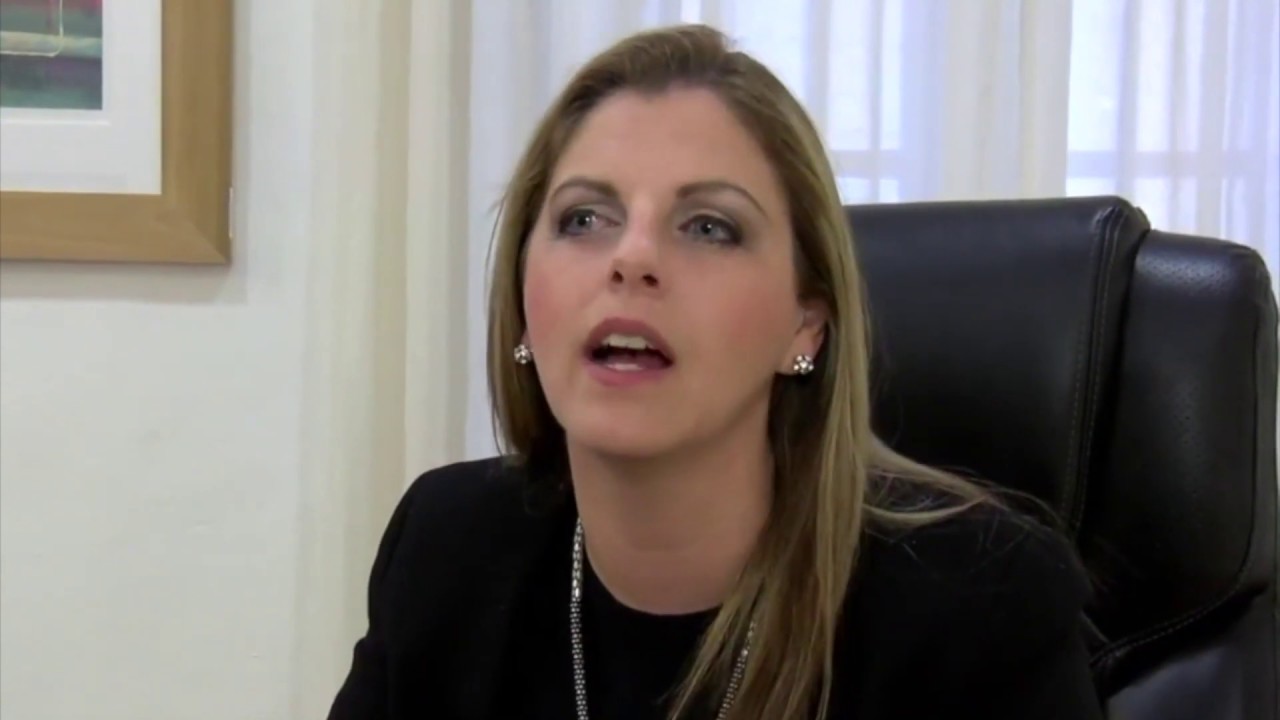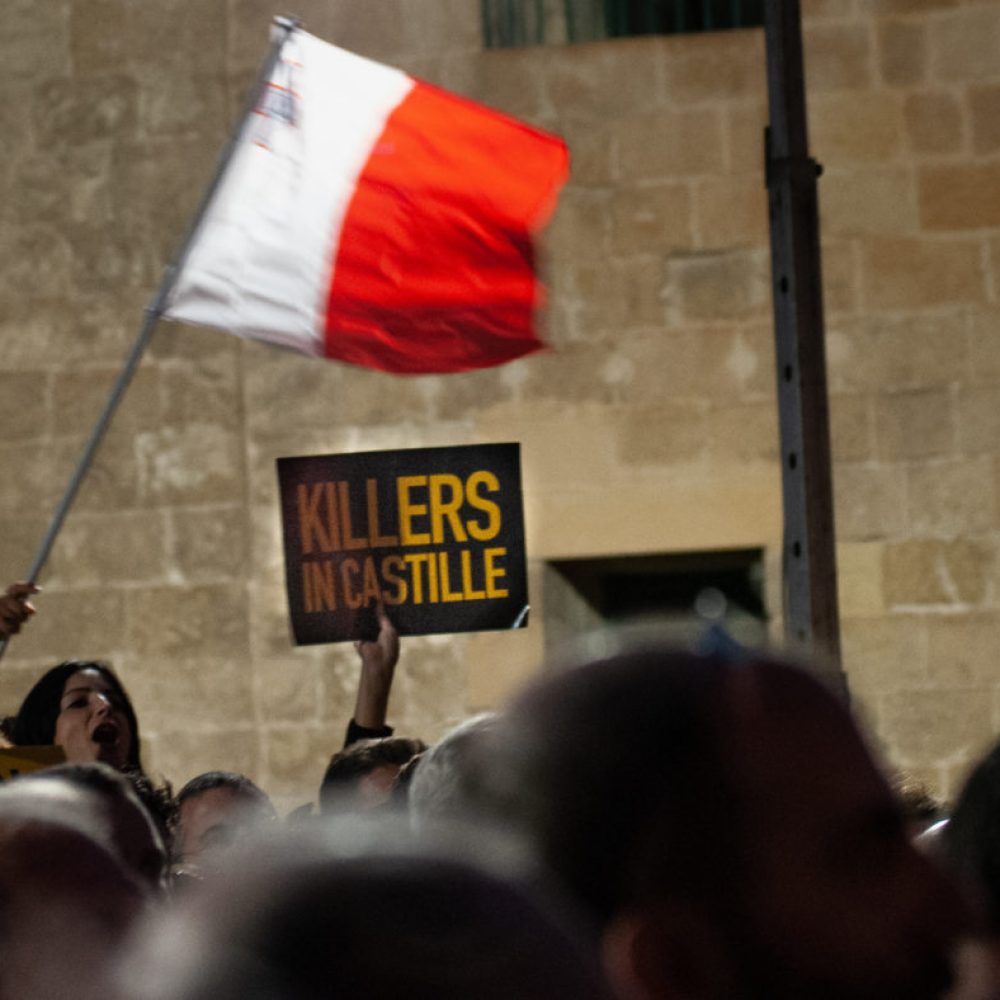Magistrate Nadine Lia accepted a request filed by the Caruana Galizia family to recuse herself from the compilation of evidence against two men linked to the assassination of Daphne Caruana Galizia, and to the 2015 murder of a lawyer unrelated to the case.
Robert Agius and Jamie Vella are charged with supplying the car bomb that killed the journalist. The magistrate said she would be abstaining from the case after the Caruana Galizia family’s lawyer asked for her recusal.
Lia is the daughter-in-law of Pawlu Lia, the lawyer of disgraced former Prime Minister Joseph Muscat. He has often represented government officials throughout the public inquiry into Caruana Galizia’s murder. Testimonies in court have previously alleged that persons within Muscat’s government were somehow implicated in the murder.

In another side of the courthouse, Malta’s tax chief, Commissioner for Revenue Marvin Gaerty took the stand at the public inquiry, where he insisted he had never received gifts from or dined with Yorgen Fenech, the man accused of financing Caruana Galizia’s murder, despite the familiar tone of the messages between the two men that police found on Fenech’s phone.
Lawyer Therese Comodini Cachia asked about a specific exchange in which Fenech referred to the journalist as ‘the witch’.
“What did you understand by the reference to a witch?”
“I did not understand anything,” he said.
“You replied, ‘No problem brother’.”
Asked if such familiarity between the tax chief and one of the country’s richest businessmen was normal, Gaerty said, “I made a mistake”.
Gaerty avoided answering specific questions about Fenech’s Dubai kickback vehicle 17 Black, and about whether the public officials mentioned in the Panama Papers had been investigated, insisting tax law forbids him from releasing such information in court without the prime minister’s authorisation.
State Attorney Chris Soler disagreed, prompting objections from Gaerty’s personal lawyers.
Comodini Cachia asked whether the tax department exchanged information with other authorities, such as the Financial Intelligence Analysis Unit, the authority tasked with investigating potential money laundering offences.
Gaerty admitted that obstacles existed, including the need to obtain approval from the prime minister to share certain information.
Like almost every other institution in the country, the Head of the tax department falls under the direct authority of the prime minister. The men whose names were revealed by the Panama Papers, chief of staff Keith Schembri and Energy Minister Konrad Mizzi, were Joseph Muscat’s closest associates.
The hearing ended with the board agreeing to submit a shorter list of companies and individuals relevant to the inquiry that Gaerty will be expected to testify about at a future date.
The board also heard from former police commissioner Michael Cassar behind closed doors. Cassar resigned his position for ‘health reasons’ in April 2016 after a damning report on Schembri and Mizzi was passed to him by the FIAU containing detailed evidence of financial crimes.
The disgraced former prime minister’s name has come up again and again in both the public inquiry and the Fenech case, but so far Joseph Muscat has managed to avoid accountability for the many corruption scandals that took place during his tenure.
Muscat was found guilty of yet another ethics violation last week, this time for using unofficial Labour Party loyalists as ‘security’ to detain journalists after a press conference that took place during late 2019 when angry anti-corruption protests drove him from office following Fenech’s arrest.
The report of the Standards Commissioner was blunt in its condemnation of both the former prime minister’s responsibility and his failure to hold his minions accountable.
“The assignment of party loyalists as unofficial security personnel is at best incorrect and abusive,” the report states. “This is a serious issue that calls into question the institutional integrity of Maltese government and the separation that should exist between State and Party.”
The Commissioner compared Muscat’s actions to the political violence perpetrated by earlier Labour Party governments during the 1980s.
He wrote, “The recourse by members of government to individuals who are known party loyalists whenever political unrest arises is, in my view, a relic of the distant past and which could have fuelled the political unrest at the time, even further.”
Hyzler also expressed his dismay at the way Muscat washed his hands of the matter.
Unfortunately, the former prime minister has once again evaded responsibility for his actions. Reports from the Standards Commissioner are handed to the parliamentary Committee for Standards in Public Life for possible sanctions. The committee is composed of two MPs from the governing Labour Party and two from the Opposition Nationalist Party, with Speaker of the House Anglu Farrugia as chairperson and tiebreaker in the event of a deadlocked vote.
Farrugia, a former Labour Party Deputy Leader and a Joseph Muscat appointee, ruled in an earlier case that the former prime minister could not be held responsible for violating the Code of Ethics because he had already resigned by the time the Commissioner made his ruling.
The fact that Muscat can be found guilty but not accountable is a symptom of the total impunity that led to Daphne Caruana Galizia’s brutal murder.
The following project is weekly Maltese Roundups prepared by The Shift News (Malta) offering the latest news in Daphne Caruana Galizia case.

